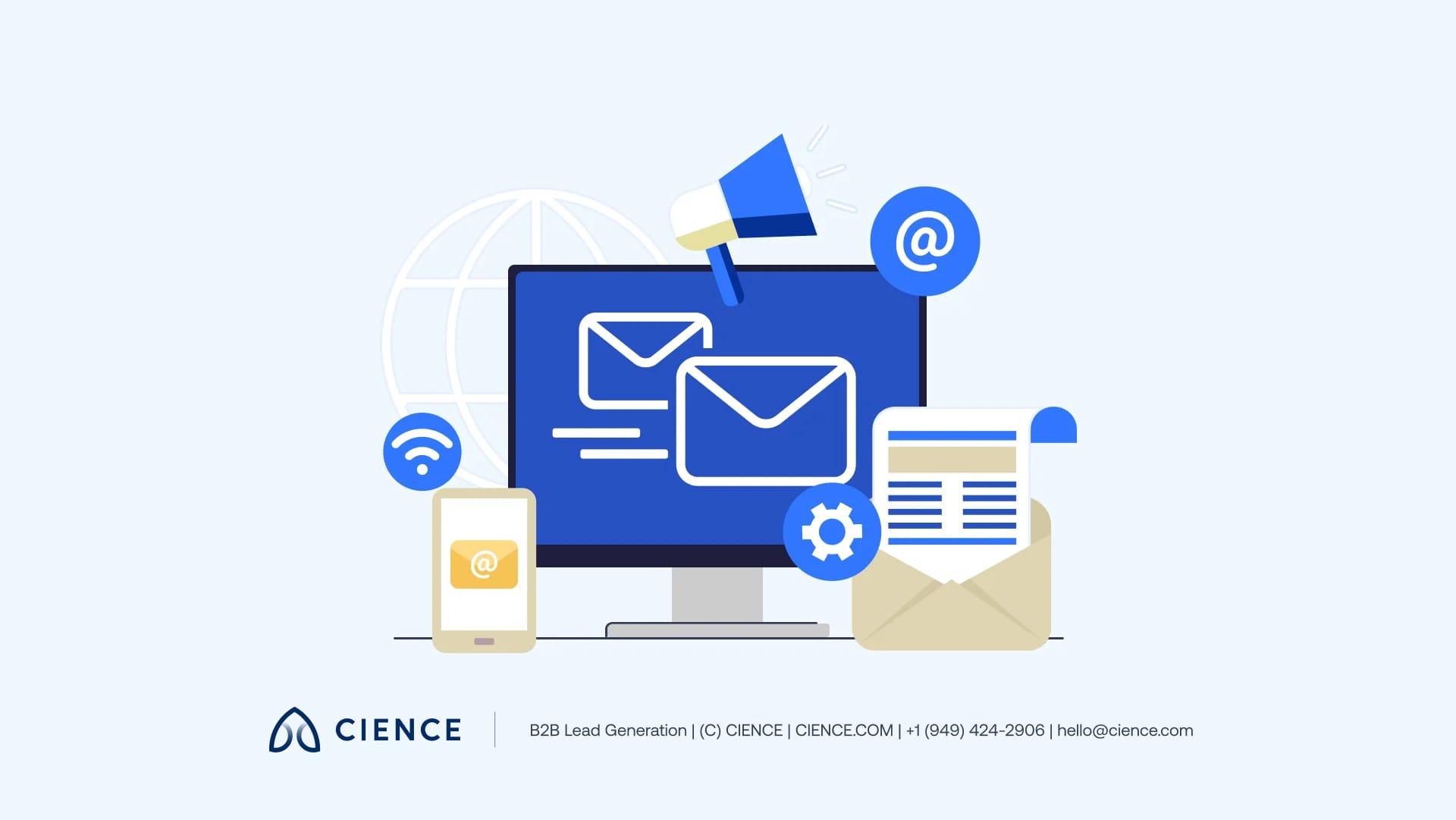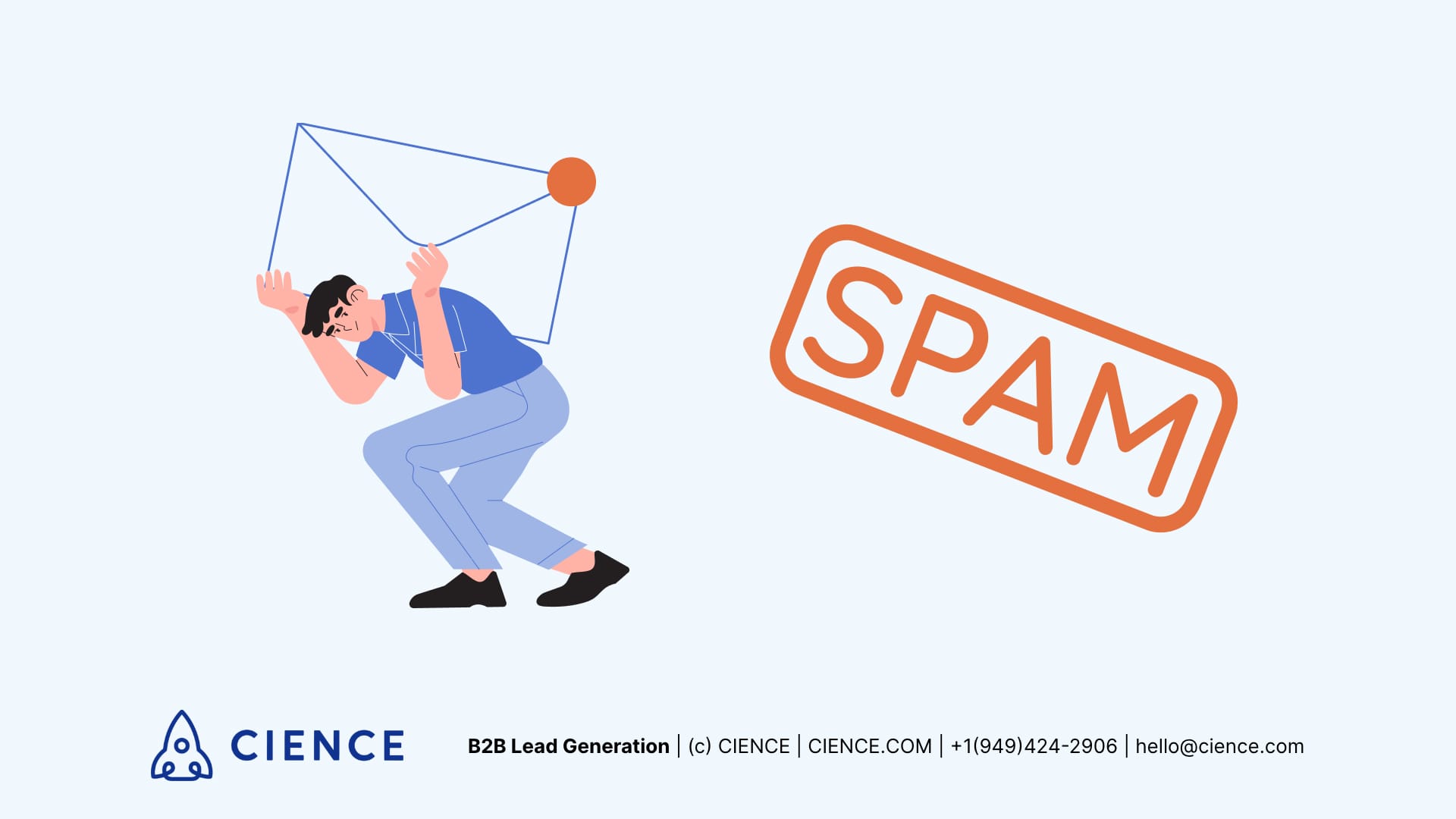2024 Need-to-Knows on B2B Email Deliverability: Expert Insights
Our Conversation with Benny Rubin of Senders - Chart Your Course to Inbox Success Every Time
Mastering the art of B2B email deliverability has never been more crucial. With recent headline moves from email giants like Google and Yahoo around rejecting a percentage of non-compliant email traffic, attention has never been higher on email deliverability.
Getting into the inbox is everything in the cold email game.
We had the opportunity to interview Benny Rubin, the CEO and Co-Founder of Senders, on the Enterprise Sales Development Podcast. Rubin's company is a renowned deliverability/sendability consultancy, providing valuable insights into navigating these changes and highlighting the nuanced approach required for successful B2B email campaigns. These insights are aimed at assisting businesses in adapting to maintain the effectiveness of their email campaigns.

Understanding Email as an Open Protocol
Rubin begins by emphasizing the fundamental nature of email, stating, "email itself is an open protocol that has a bunch of things stacked on top of it, which make it work, and nobody owns email at all."
This insight is crucial for B2B senders navigating the complexities of email deliverability within an open ecosystem. He further elaborates on the implications of this reality, noting, "almost all of the rules -- air quote rules -- and the heuristics that people talk about...they're just not factually accurate."
Read Beyond the Headlines
In light of recent concerns and misinformation regarding email sender guidelines, especially with Google and Yahoo, it's important to clarify the facts. The updated email sender guidelines introduced by Google do not affect messages sent to Google Workspace accounts but are specifically targeted at emails sent to personal Gmail accounts (@gmail.com or @googlemail.com addresses).
This distinction is pivotal for B2B senders, as the new sender requirements and enforcement measures apply exclusively when emailing personal Gmail accounts, not business accounts associated with Google Workspace.
Furthermore, the threshold for spam reports has been refined to a more stringent .3%, emphasizing the importance of maintaining low spam rates to avoid penalties. Notably, these changes predominantly impact bulk email senders—defined as those sending 5,000 or more messages to personal accounts within a 24-hour period—underscoring the differential treatment of bulk versus targeted 1:1 B2B email strategies. As of now, emails directed towards Google Workspace accounts are exempt from these counts, highlighting a clear delineation between B2B and B2C email targeting practices. For a comprehensive understanding of these guidelines, refer to Google's full guidelines here.

The Four Elements of Successful Email Delivery
Rubin identifies four critical elements that significantly impact the success of email delivery, especially in the B2B sector:
1. Domains: In the realm of email deliverability, especially within a B2B context, the domain from which your emails are sent plays a pivotal role in establishing trust and ensuring your messages reach their intended recipients. As Rubin says, understanding email as an open protocol reveals the intricate dance of factors influencing deliverability. This knowledge underpins the significance of managing your domain with the utmost care to maintain a pristine reputation.
A domain that has been meticulously managed and kept free from association with spammy activities is more likely to be deemed trustworthy by email service providers. Rubin's insights hint at the broader landscape of email communication, where technical and reputational aspects intersect. To ensure your emails stand the best chance of landing in the coveted inbox, it's imperative to adopt a holistic approach to domain management.
2. IP Addresses: Rubin offers an insightful analogy, likening IP addresses to mailboxes, to underline their importance, "It's which mailbox you drop the letter off at...bad actors drop off emails at bad postboxes." This vivid comparison sheds light on how the reputation of the IP address, much like a physical mailbox, significantly influences email deliverability.
It's important to consider various factors when using inherited architecture, such as utilizing Google or Microsoft products for email sending, rather than your own or specifically designed email servers. These factors may include placement of new domains in suspect IP blocks (IP ghettos) or facing penalties or demotion to less favorable IPs due to behaviors that violate the Google/Microsoft Terms of Service.
Rubin cautions against rapid scaling that might compromise your emails' delivery success, advocating for a more measured approach to volume increases.
3. DNS Settings (SPF, DKIM, and DMARC): Rubin places a strong emphasis on the necessity of proper DNS settings for email authentication, asserting, "Then we have DNS. SPF, DMARC, DKIM, other elements of your DNS records." He points out that these technical configurations are essential for proving the legitimacy of your emails to service providers, thereby safeguarding against spoofing and phishing while enhancing deliverability.
These technical standards are also a key area where major email providers base their enforcement policies.
4. Email Content and Strategy: Rubin highlights the pivotal role of content and strategy in email success, suggesting that emails should engage recipients on a human level. He summarizes Email Game Theory strategy effectively:
"It seems to me that the real magic is the writer of the email, whether it's a client or an agency or someone really trying to game theory, what goes on in the head of the person that they're emailing, right? And just literally poking holes in it."
"I find that clients that come to us (or maybe the same ones that come to you!) that say, this is the email we want to try. You realize that it's a nice email. It's written very well. It just hasn't been interrogated. It might've been tested and sometimes you win with emails that, like I said, that are actually really bad... (but) you never really know until it's tested."
4a. Creating Content That Resonates with a Professional Audience
Drawing from Rubin's insights, the key to crafting effective B2B email content lies in understanding your audience deeply and delivering value in every message. Whether it's providing insightful industry analysis, sharing useful tips, or offering exclusive access to webinars and resources, each email should be designed to add value to your recipient's professional life. This approach not only fosters stronger relationships but also positions your brand as a thought leader in your industry.
Unsurprisingly, Rubin is against using tactics that could activate spam filters or discourage interaction. Rubin champions the idea of testing various approaches to discover what resonates best with your target audience, emphasizing the value of adaptability and experimentation in B2B email marketing strategies.
By integrating Rubin's expert insights into each of these four critical areas, B2B leaders can refine their email delivery practices to achieve better engagement and deliverability outcomes.

Scaling Email Campaigns Thoughtfully
Rubin advises against the temptation to rapidly scale email campaigns, which can lead to deliverability issues. Instead, he recommends a methodical approach to increasing volume, such as gradually adding more emails per day or incorporating more warming traffic to maintain a healthy sender reputation. This gradual approach helps avoid the pitfalls of triggering spam filters or damaging your reputation with email service providers.
Summary
Benny Rubin's insights into B2B email deliverability offer a roadmap for navigating the complex landscape of digital communication in 2024. By understanding email as an open protocol, focusing on the four critical elements of successful email delivery, and scaling campaigns thoughtfully, B2B marketers can optimize their email strategies to achieve maximum impact. As we adapt to the latest updates from Google Workspace and Microsoft, it's clear that a nuanced, informed approach to email deliverability is more important than ever.
For businesses looking to refine their B2B email campaigns, partnering with experts like CIENCE and Senders can provide the guidance and support needed to navigate these challenges successfully.
